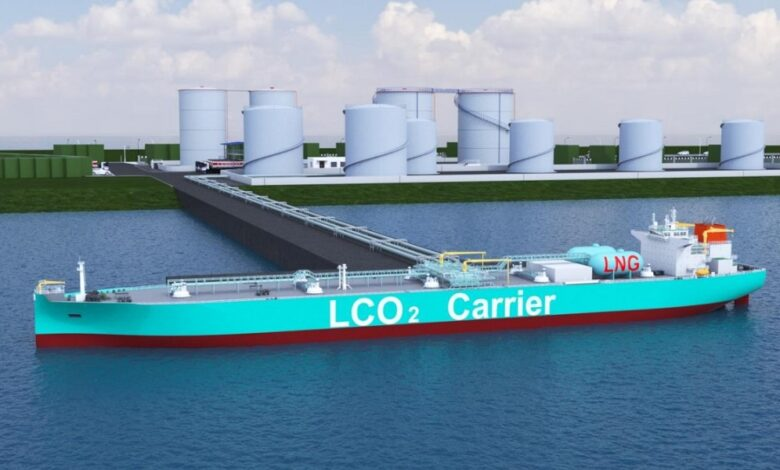Japanese shipping giant Mitsui OSK Lines (MOL) has joined forces with fellow energy firm Cosmo Oil to explore shipping opportunities for carbon dioxide.

Under a memorandum of understanding, the duo will study ocean transport with the goal of establishing a CO2 capture and storage (CCS) value chain.
The partners will outline the specifications of liquefied CO2 carriers that would be suitable for the volumes produced from Cosmo refineries and the shipping distance from the emission sources to storage sites in Japan and abroad.
The deal foresees an estimate of shipping costs and possible further collaborations on any potential projects on CCS, CO2 capture, separation, ocean transport, and reuse.
MOL entered the business of transporting liquefied CO2 by sea in March 2021 when it invested in Larvik Shipping, which has managed industrial liquefied CO2 vessels in Europe for over 30 years. Since then, the company has been looking to develop larger ships to facilitate the needs of this growing sector. The shipowner has also teamed up with Chevron to study the feasibility of transporting liquified CO2 from Singapore to permanent storage locations offshore Australia.
In June this year, MOL and Malaysia’s state energy firm Petronas showcased the results of their joint efforts aimed at shipping and storing liquified CO2.
The duo, in collaboration with Shanghai Merchant Ship Design & Research Institute (SDARI), has developed and secured approval in principle for liquefied CO2 carriers and a floating storage and offloading (FSO) unit.
A 14,000 cum short-haul unit and a larger 87,000 cu m vessel designed for long-haul voyages were classed by DNV, while the American Bureau of Shipping (ABS) gave its stamp of approval for a 96,000 cu m FSO concept developed for intermediate storage and offloading offshore, as well as for another 87,000 cu m carrier with an installed dynamic positioning system that is intended for long-haul transportation and offshore offloading.


